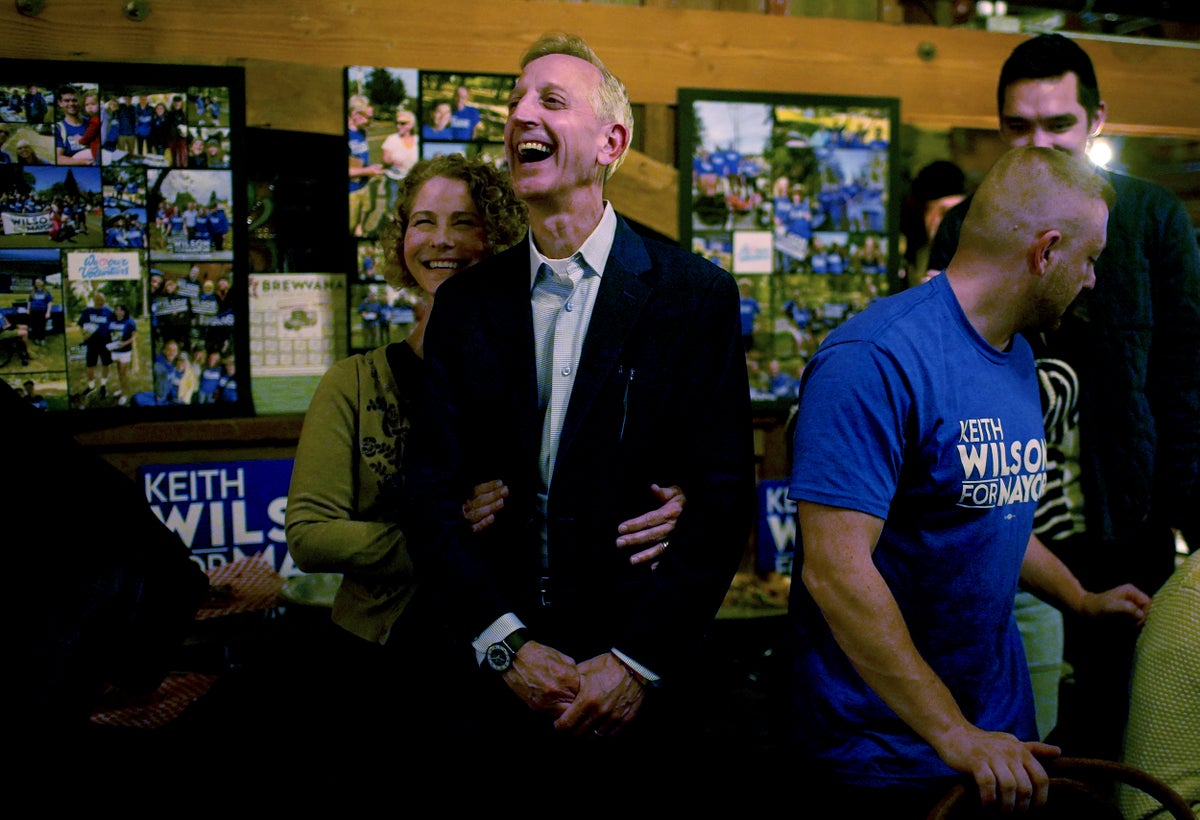
Voters in Portland, Oregon, have elected political outsider Keith Wilson as their new mayor, following a campaign in which he capitalized on years of growing frustration over homeless encampments, open drug use and quality of life concerns to outperform three City Council members — including one ensnared in a driving record scandal — who had also sought to lead the city.
Wilson, the CEO of a trucking company and founder of a nonprofit working to increase homeless shelter capacity, ran on an ambitious pledge to end unsheltered homelessness within a year of taking office. The Portland native says he will accomplish this in part by increasing the number of nighttime walk-in emergency shelters in existing facilities such as churches and community centers.
His message appears to have resonated in a city where surveys conducted over the past few years have shown that residents view homelessness as a top issue.
“It’s time to end unsheltered homelessness and open drug use, and it’s time to restore public safety in Portland,” he said in his acceptance speech Thursday, speaking at a community center in north Portland that has also served as an emergency overnight shelter during extreme cold and heat waves. "Voters aren’t interested in pointing fingers. They just want us to get things done."
The mayoral race, which featured 19 candidates, was thrown open when Mayor Ted Wheeler decided against seeking reelection after holding the city’s top post since 2017. Wheeler rose to national prominence in 2020 as nightly protests erupted on Portland streets and around the country in response to the the police killing of George Floyd.
Wilson won in an election in which Portland voters used ranked-choice voting for the first time. Under ranked-choice voting, voters rank their picks in order of preference on the ballot. If a candidate is the first choice of more than 50% of voters in the first round of counting, that candidate wins.
Otherwise, the count continues to a second round. The candidate with the fewest votes is eliminated, and voters who chose that candidate as their top pick have their votes redistributed to their next choice. The process continues with the candidate with the fewest votes getting eliminated until someone emerges with a majority of votes.
About 35% of voters ranked Wilson as their first choice, according to the first and second rounds of preliminary results released Tuesday and Wednesday. That is compared with City Council members Carmen Rubio and Rene Gonzalez, who were ranked first by roughly 19% of voters, and Mingus Mapps, ranked first by some 13% of voters.
Rubio and Gonzalez said they called Wilson to congratulate him on his new role.
For much of the year, the two City Council members were viewed as frontrunners. But recent revelations about Rubio’s driving record — as well as Gonzalez’s, to a much lesser extent — shook up the race.
Rubio has received roughly 150 parking and traffic violations over the last two decades. She failed to pay many of them for months or even years and had her license suspended six times. She lost some endorsements following the news, which was first reported by The Oregonian/OregonLive.
Gonzalez also had his license suspended twice over 20 years ago and racked up seven speeding tickets between 1998 and 2013, including one that was dismissed, as first reported by Willamette Week.
In previous statements, Rubio apologized for her actions, and Gonzalez said he had grown more responsible with age.
Wilson will oversee a completely new system of government. Portland is expanding its City Council from five to 12 members, elected by voters in individual districts rather than citywide, and adding a city manager position.







